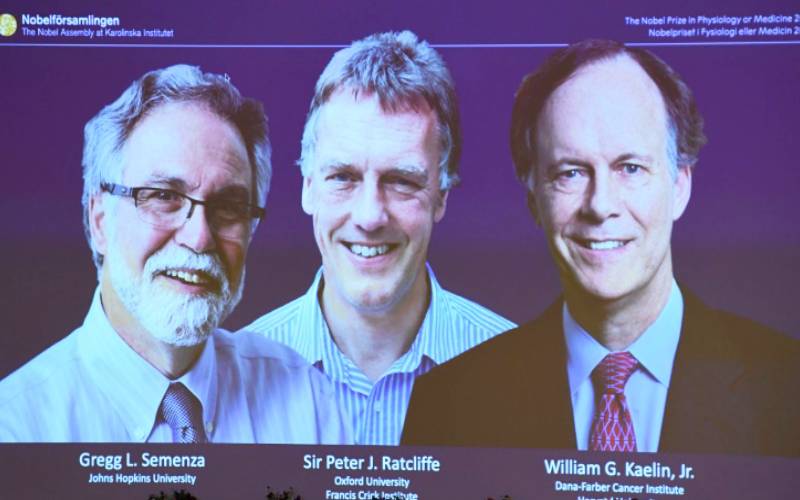×
The Standard e-Paper
Fearless, Trusted News

Gregg Semenza, Peter Ratcliffe and William Kaelin won the Nobel Medicine Prize for discoveries about cells and oxygen.
Three researchers from the United States and Britain on Monday shared the Nobel Medicine Prize for research into how human cells sense and adapt to changing oxygen levels, opening up new strategies to fight such diseases as cancer and anaemia.